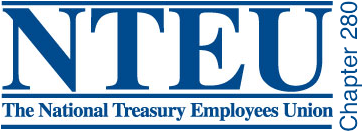You are invited to watch a panel of distinguished EPA alumni discuss the environmental and health risks posed by PFAS (also known as "Forever Chemicals"), the efforts to control those risks, and the impacts of those efforts on regulated entities on Tuesday June 20th at 4 pm EST. Please register for the discussion.
Robert Sussman, Moderator
Bob Sussman is the principal in Sussman and Associates, a law and consulting firm that offers advice and support on energy and environmental policy issues to clients in the non-profit and private sectors. Bob serves as counsel to Safer Chemicals Healthy Families, a coalition of non-profit environmental and public health groups. He was deeply involved in the recent bi-partisan overhaul of the Toxic Substances Control (TSCA) and is now immersed in implementation of the new law.
Bob was Co-Chair of the Obama Transition Team for EPA and then Senior Policy Counsel to the EPA Administrator from 2009-2013. Bob served in the Clinton Administration as the EPA Deputy Administrator during 1993-94. He has been an Adjunct Professor at the Georgetown University Law Center, a Guest Lecturer at the Yale School of Forestry and Environmental Studies and a Visiting lecturer at Yale Law School.
Alexandra Dunn, Panelist
Alexandra (Alex) Dunn is a Partner in the Environmental, Safety, and Incident Response group at the international law firm of Baker Botts with 28 plus years of practice at the local, state, and federal levels of government.
From 2019-2021, with unanimous consent confirmation by the U.S. Senate, Alex served as Assistant Administrator for the U.S. Environmental Protection Agency's Office of Chemical Safety and Pollution Prevention. Prior, she was EPA Administrator for New England from 2018-2019, where she focused on watersheds, enforcement, and environmental justice.
Previously, Alex served as Executive Director and General Counsel of the Environmental Council of the States (ECOS), the non-partisan association of U.S. state and territorial environmental commissioners. She held other dynamic positions in her career, including Executive Director and General Counsel of the Association of Clean Water Agencies (ACWA); Dean of Environmental Law Programs at the Elisabeth Haub School of Law at Pace University; General Counsel of the National Association of Clean Water Agencies; and Counsel at the American Chemistry Council. Alex is currently an adjunct professor of environmental justice at the law schools of both Catholic University and George Washington University.
G. Tracy Mehan, III, Panelist
G. Tracy Mehan, III is Executive Director, Government Affairs, for the American Water Works Association (AWWA). He was an independent consultant and served as Interim President of the U.S. Water Alliance and national Source Water Protection Coordinator for the U.S. Endowment for Forestry and Communities. He is also an Adjunct Professor at the Antonin Scalia Law School at George Mason University and Carnegie Mellon University’s Heinz College. He was Principal with The Cadmus Group, Inc., an environmental consulting firm, from 2004 to 2014. Mehan served as Assistant Administrator for Water at the U.S. Environmental Protection Agency from 2001-2003. He served as Environmental Stewardship Counselor to the 2004 G-8 Summit Planning Organization (2004). Mehan also served as director of the Michigan Office of the Great Lakes (1993-2001) and as Associate Deputy Administrator of EPA in 1992. He was director of the Missouri Department of Natural Resources from 1989 to 1992. Mehan is a graduate of Saint Louis University and its School of Law. Mehan served on the Water Science and Technology Board and now the Committee on the Mississippi River and the Clean Water Act for the National Research Council of the National Academies. He was also an independent expert judge for the City Water Conservation Achievement Award program (2006 & 2011) sponsored by The U.S. Conference of Mayors and its Urban Water Council. Mehan is a member of the Environmental Law Institute (ELI) and a regular book reviewer for ELI’s flagship publication, The Environmental Forum. Mehan served on EPA’s Environmental Financial Advisory Board (2014-2018) as well as the boards of the U.S. Water Alliance and the Great Lakes Observing System. He is also a member of the Advisory Board of the Center for Environmental Policy, School of Public Affairs, American University and a past member of the board of the Potomac Conservancy (2006-2014).
Dr. Elizabeth Southerland, Panelist
Elizabeth Southerland received a PhD in environmental science and engineering from Virginia Tech in 1982. She worked in state and local government before joining the USEPA in1984. She was a senior scientist and manager in the Superfund and Water programs before retiring in 2017 as director of the Office of Science and Technology in the Office of Water. She received the President’s Distinguished Executive award for her career accomplishments at the USEPA. Since retirement, she has been a member of the Environmental Protection Network, testifying before Congress on environmental issues and providing technical assistance to communities.









